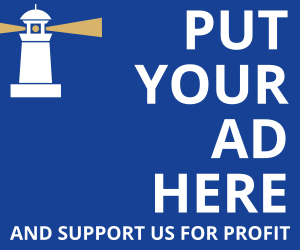
Judging by all the protests, the marches, the speeches and the media reports, one would think that women in the West (of all places), seem to have been dealt a really bad hand. Professional and institutional sexism limits their potential, the patriarchy holds them down and society at large treats them like second class citizens.
“Hell hath no fury like a woman scorned," wrote William Congreve 320 years ago, and it still holds true today. Back then and for centuries to follow, lots of things scorned us indeed: society norms confined us in a caricatural stereotype, the Church assumed any female that didn't fit their technical specifications to be automatically a witch, even Science dismissed our capacity for rational thought and called us all hysterics. But most of all, it was the State that truly scorned, wronged and oppressed us. Most civil and human rights were off the table, including voting, education, work and financial self-determination, purposefully reducing women to powerless, voiceless baby machines.
We’ve come a long, long way
Despite the modern feminist narrative of the oppressed and permanently victimised western female, things are looking better than they ever did for women in human history. We can vote, open a business, take out a loan without the need for a male signature or invest our own money in any way we please. We can even become Presidents and have a chance to disappoint our voters as badly as any man would too. And of course, the courage and perseverance of historic visionaries like Elizabeth Cody Stanton, Susan B. Antony and Alice Paul played an important role in the political freedom that women enjoy today.
Winning the political battle was unquestionably a milestone. Yet I personally marvel at the progress women made and continue to make, not by asking the state to acknowledge and grant them their inalienable human rights, or by “petitioning” for recognition and respect, but by decisively proving their worth and earning it. It wasn't mere politics that got us here. It was unshackled thought and resolute action: Millions of normal women, whose names we will never know, threw their own stones at the so called “glass ceiling”. On an uneven playing field, they still defiantly competed with their male peers in academia, in science, in the business world. Through sheer self reliance and hard work, they redefined the women’s role, they shattered preconceptions and it is thanks to their victories that I can write this article today, and see it published.
A thought experiment
It is indeed deeply gratifying seeing one's words in print. But here’s a question worth raising: would I feel the same joy and pride, if I knew that the editor of this publication was legally forced to publish my work, to fulfill some quota requirement or comply with some female-subsidizing state regulation? Let’s assume I wouldn't mind being patronized like that and such haughty ethical concerns would not trouble my “pretty little head”. Even so, would I still be motivated to do my research or to put my best efforts into my articles, if I knew the magazine would have to publish any un-fact-checked, rambling nonsense I sent them, of no value to their readers? In fact, I could invest these extra hours in perfecting my blueberry muffin recipe, and as for the article, well, I could just write about which type of eyeliner is my favorite and why. And how about you? Would you enjoy reading such an article?
Assuming Smart Investor magazine lives up to its name, the editor would surely foresee that you most likely would not, and would never let you read such rubbish. In order to do that, however, he would have to pour extra resources into correcting, editing, or even rewriting the whole piece from scratch. Essentially, the magazine would do my job for me. They would pay twice for the same product. And if they had to do it often enough, their bottom line would also reflect this inefficient resource allocation. And now, imagine this applied across industries, on a state-wide level.
“Equal Pay for equal work!”
Heaps and mounds of research have repeatedly discredited the myth of wage inequality, but it appears the narrative is too convenient for its propagators to give up. They twist and turn the numbers to make them fit this non-issue, and yet reality persists: By and large, in the same position, and given the same work hours, experience, education and employment conditions, women and men get paid the same. As demonstrated though extensive research by Claudia Goldin, the first woman to get tenure in the Harvard economics department: In the rare cases that women do get paid less, it is, quite unsurprisingly, either because they choose flexible hours, or take less overtime than their male colleagues. In other words, the “gender pay gap” is there by choice, not by force. More specifically, the free choice of a woman to make time for her family and children, without sacrificing her career.
So, is sexism dead?
No, of course not. There still is a set of men, and women, that hold medieval beliefs and have an anachronistic view of what a woman can and cannot do. There are still those who think the woman’s place is in the home, that girls should only be allowed to do ballet, French and piano and that the female brain is not adequately equipped to handle complex things like politics, finance and driving a car. Of course there are still sexists out there. In fact, I’ve met my fair share of them.
However, if my response to their bigotry was to go running to the state to protect me from their personal beliefs and opinions, I would be confirming all their preconceptions and biases. Sure, the state would protect me, by trampling over their freedom of speech, and by forcing quotas and other restrictions on their business, which would only prove their point, that females are weak and frail creatures, who need special treatment.
What does protect me, and everybody else’s liberties at the same time, is the free market. I can simply choose not to do business with people who dismiss or disrespect me because of my gender, I can boycott their products, I can fire them from my company, I can refuse them service. And if enough reasonable women and men do that, the market itself will see to their extinction, as is has already seen to their rapid decline. Through individual choice, not state-sponsored force. Through the exercise of free will and free speech, not the threat of punishment from above. And through the understanding that true respect and recognition, regardless of gender, are things one works for, competes for and earns.
They cannot be regulated, taxed and subsidized or handed out like welfare benefits and state aids. If they could, they wouldn't be worth having.
Originally written for Smart Investor, 4/2017.




